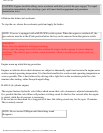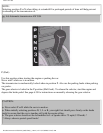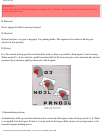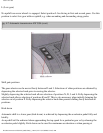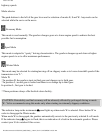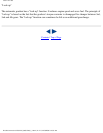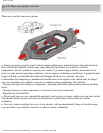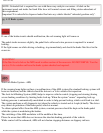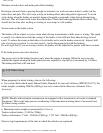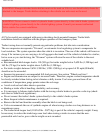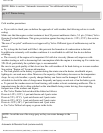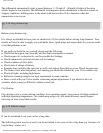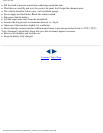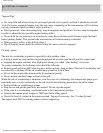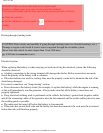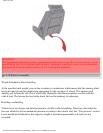
1993 Volvo 960
Moisture on brake discs and brake pads affects braking.
Driving in rain and slush or passing through an automatic car wash can cause water to collect on the
brake discs and pads. This will cause a delay in braking effect when the pedal is depressed. To avoid
such a delay when the brakes are needed, depress the pedal occasionally when driving through rain,
slush etc. This will remove the water from the brakes. Check that brake application feels normal. This
should also be done after washing or starting in very damp or cold weather.
Severe strain on the brake system
The brakes will be subject to severe strain when driving in mountains or hilly areas or towing. The speed
is usually low which means that the cooling of the brakes is less efficient than when driving on level
roads. To reduce the strain on the brakes it is advisable not to use the brakes excessively. Instead, shift
into a lower gear, position 3 or in some cases L, and let the engine help with the braking.
Do not forget that, if you are towing a trailer, the brakes will be subjected to greater load than is normal.
If the brake power-assist does function
The power assist to the brakes functions only when the engine is running. When the car is moving
without the engine running the brake pedal pressure required to stop the car is increased by 3-4 times.
The brake pedal feels stiff and hard.
pg. 4:16 Trailer towing
When preparing for trailer towing, observe the following:
● Use a trailer hitch which meets Federal Safety Standards for rear end collisions (FMVSS 301-75). For
trailer weights exceeding 2000 lbs (908 kgs) use only a trailer hitch offered as a Genuine Volvo
Accessory.
NOTE: Models with automatic transmission are equipped with a transmission oil cooler as standard
equipment. This cooler helps prevent overheating of the transmission during times of increased load,
as when towing a trailer.
● Maximum trailer weight recommended by Volvo is:
Trailers without brakes : 1540 lbs (700kg)
Trailers with brakes: 2" ball - 3300 lbs (1500 kg), 1 7/8" ball - 2000 lbs (908 kg).
Observe legal requirements of the state in which the vehicles are registered.
file:///K|/ownersdocs/1993/1993_960/93960_4_14.html (3 of 7)12/30/2006 9:47:04 AM



